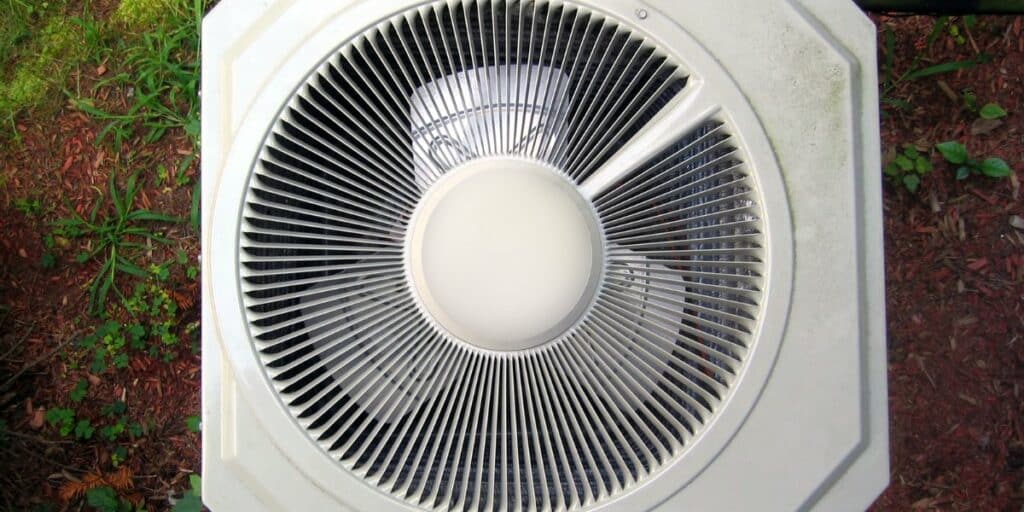Heat pumps are generally quieter than traditional heating systems, yet they produce some noise during operation. This noise level can vary based on the type of heat pump you choose. This article aims to demystify heat pump noises, offering a comprehensive guide on what to expect and how to manage the soundscape of your heating system.
The type of heat pump you install – air or ground source – greatly influences the noise level. Due to their design, Air source heat pumps, which includes outdoor fans, are typically noisier than ground source heat pumps. Understanding these differences is crucial in setting realistic expectations and making informed decisions about your home heating solutions.
How much noise does a Heat Pump actually make?
The noise emitted by heat pumps, measured in decibels (dB), can vary significantly based on the type of heat pump, its model, and the operational mode.
Manufacturers provide sound-level ratings in the technical specifications of their heat pump units. These ratings give you a good indication of the noise you can expect under standard operational conditions.
For instance, modern air source heat pumps have outdoor units with sound ratings typically 40 to 60 decibels. To put this into perspective, this range is comparable to the sound of moderate rainfall or a normal conversation, making it relatively unobtrusive in a residential setting.
Some high-end heat pump models are designed to be quieter, offering lower decibel ratings and ensuring minimal disruption. These units are ideal for environments where noise levels are a significant concern, such as densely populated neighborhoods or homes where quiet outdoor spaces are highly valued.
Indoor units of heat pumps tend to be quieter than their outdoor counterparts, with sound ratings usually falling between 18 and 30 decibels.
This range is on par with the ambient noise in a quiet library or the soft hum of a computer. This low noise level ensures that the indoor units do not interfere with daily activities and conversations, even when they are close to living or working spaces.
When considering the noise level of an operational heat pump, it’s beneficial to visualize it as a blend of sounds you might be familiar with, such as a microwave oven or a desktop fan. Although these comparisons give a general idea of the noise level, it’s important to note that the actual sound will be influenced by the specific heat pump model and the acoustics of the installation environment.
It’s also worth noting that most of the noise from a heat pump originates from the outdoor unit. This is due to the components involved in heat exchange and compression processes, which are necessary for the heat pump operation but can generate noticeable sound. However, as these outdoor units are typically installed away from living spaces and critical areas such as bedrooms and study rooms, the impact of the noise on your daily life is greatly reduced.
Factors Influencing Heat Pump Noise
Noise from heat pumps originates mainly from fans and compressors. The model and speed of the fan, airflow dynamics, and system pressure significantly affect the noise levels.

When purchasing a heat pump, consider models with:
- Variable speed fans and compressors
- Soft start and stop functions
- Nighttime or low sound modes
- Insulated compressors
These features are designed to minimize noise, enhancing the comfort and tranquility of your living environment.
Proper installation plays a pivotal role in managing noise levels. Discuss with your contractor the optimal placement of the outdoor unit, considering proximity to windows, adjacent buildings, and property boundaries. Placing the unit on a solid base with vibration-absorbing materials and employing barriers like fences or landscaping can also mitigate noise transmission.
Be aware of municipal residential noise control by-laws, ensuring your installation complies with local regulations and community standards.
Heat Pump Noise Regulations
While air source heat pumps are relatively quiet, they are not silent, and their installation must account for potential noise pollution. To maintain good neighborly relations and adhere to local guidelines, the outdoor unit should be placed as far from neighboring properties as possible. Before installation, consider discussing your plans with neighbors to manage expectations.
Additionally, regulations may require air source heat pumps to be installed at least one meter from property boundaries and to maintain noise levels below 45 decibels. For noisier units, planning permission may be necessary.
Addressing Excessive Heat Pump Noise
While some operational noise is normal for heat pumps, unusual sounds like clanking, gurgling, or hissing should be promptly addressed. Contact your installation engineer or a registered technician if you notice any concerning noises. Regular maintenance is crucial; a well-serviced heat pump operates more quietly and is more efficient and reliable.
Understanding the heat pump noise is essential for homeowners considering this heating solution. While heat pumps are generally quieter than traditional heating systems, the noise level can vary depending on the unit’s type, model, and installation. By being informed about expected noise levels, installation best practices, and local regulations, you can ensure that your heat pump provides warmth efficiency and the peace and quiet you deserve in your home.






